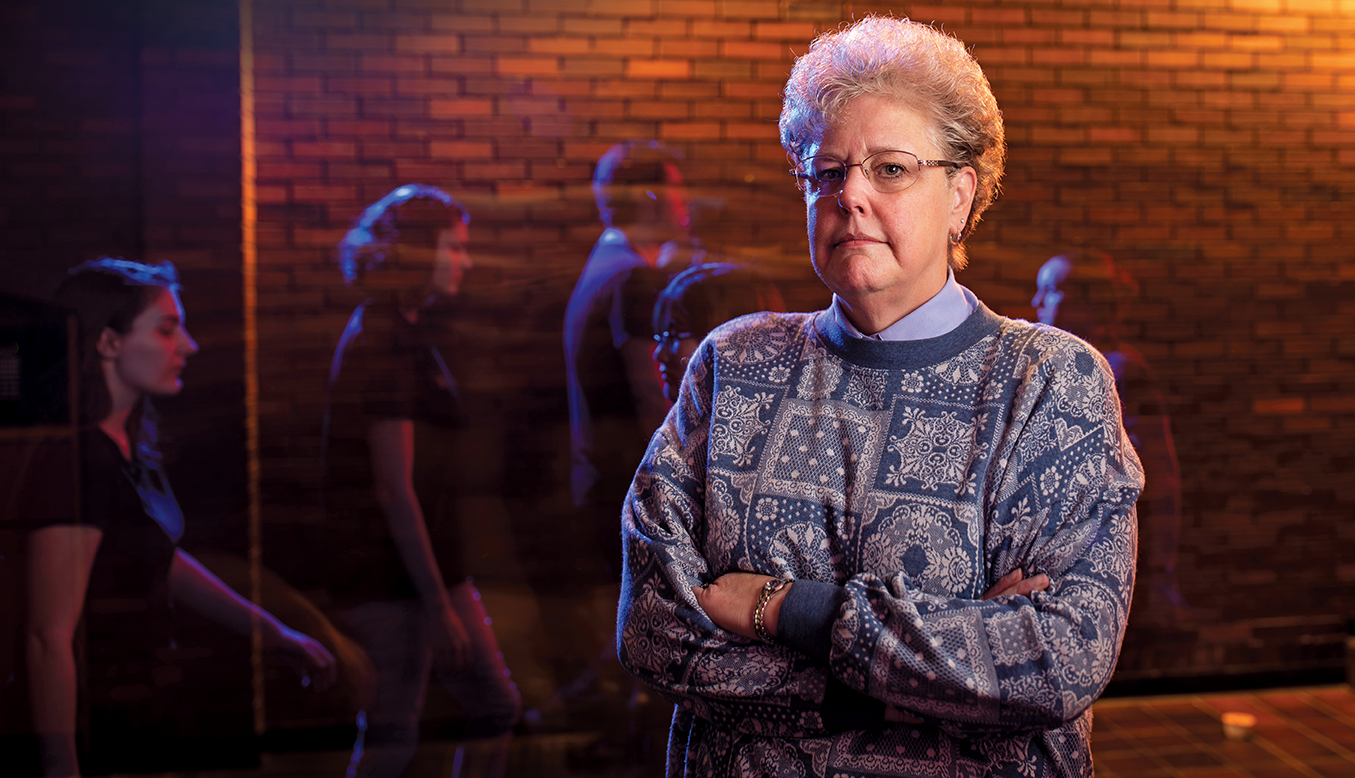
Fight back against human trafficking
Susan D. Laird, 1985, BA/1991, MSEd
“I have never worked a day in my life,” says Susan D. Laird, 1985, BA, Sociology and 1991, MSEd, Counseling.
“With 32 years as a counselor and 28 years as a part-time faculty member, I tell my students that if you find out what is right for you, you will feel like you have never worked a day in your life. Not to say it isn’t going to be difficult at times, but the satisfaction is amazing.”
It is with this passion that Laird approaches not only her counseling and teaching but also her work as executive director of the Northeast Ohio Coalition Against Human Trafficking.
The coalition strives to create an awareness of the atrocities of human trafficking in Northeast Ohio through research and community education, while partnering with social service agencies and businesses and collaborating with law enforcement, legislators and other Ohio anti-human trafficking coalitions.
“Working in this field, in human trafficking, these are probably among the most damaged/traumatized individuals in our community and everyone that I have met or been involved with at some level, including their rescue, I am privileged to have known them,” said Laird.
Laird said a common misconception is that being trafficked is a “choice” that victims willingly make because they are “paid.”
“This couldn’t be further from the truth,” she said. “Human trafficking victims have not chosen this life; they are kept in deplorable living conditions and never see a dime. Everything a trafficker does is about money, power and control.”
As part of her work with the education and awareness campaign, Laird finds herself averaging three speaking engagements a week throughout the year.
“I will talk to one person, 5 people or 10 people, or a thousand; it doesn’t matter,” said Laird. “The more people who know about and understand what human trafficking really is, and we can put aside some of the preconceived notions, then the better prepared we are as a community to deal with it. Because, it is here. Unfortunately, you don’t have to look far.”
Ohio ranks fourth in the nation for human trafficking in sex, and Youngstown is seventh in the nation for calls to the national human trafficking hotline, according to the Polaris Project (polarisproject.org), a leader in the global fight to eradicate modern slavery.
Laird found a way to combine two of her passions on YSU’s campus. Having served as an instructor at YSU since 1991, Laird approached Matt O’Mansky, professor and chair in the department of Sociology, Anthropology and Gerontology, with the idea of offering an entire course on human trafficking.
|
Human Trafficking is a form of modern-day slavery with cases of human trafficking reported in all 50 states. Human Trafficking takes two forms, Sex Trafficking and Labor Trafficking. These are the recruitment, harboring, transportation, provision or obtaining of a person for the purpose of either a commercial sex act or for labor or services, both through the use of force, fraud or coercion for the purpose of subjection to involuntary servitude, debt bondage, slavery or in which the person forced to perform such an act is under the age of 18. Human trafficking is a market-based economy that exists on the principles of supply and demand and thrives due to conditions that allow for high profits to be generated at low risk.
|
During the Spring 2018 semester, the course - Human Trafficking in America - was offered for the first time. Now in its third semester, Laird has kept the class intentionally small, with no more than 30 students.
“With the topic of human trafficking, we need the intimacy of a small class,” explained Laird. “Sometimes students struggle; this is not an easy topic to discuss, and a smaller class makes it easier for students to share their feelings, emotions and experiences.”
Laird found that while human trafficking is difficult to discuss, students were left asking, “What can we do?” As a result, the YSU Coalition Against Human Trafficking was established in January 2019. Y-CAHT’s mission is to ensure that every student on campus has the opportunity to learn what human trafficking looks like.
YSU has the only student-led coalition against human trafficking and is one of just four universities in the state of Ohio that offer a full semester course on human trafficking.
“Traffickers aren’t just strangers. They are mothers, fathers, relatives or significant others,” said Laird. “My hope is that we can provide students with the knowledge and information they need to not only identify instances of human trafficking but hopefully give them the tools to help prevent it.”
If you suspect you have witnessed a case of human trafficking, contact the National Human Trafficking Resource Center at 1-888-3737-888 or text “HELP” to #233733.
